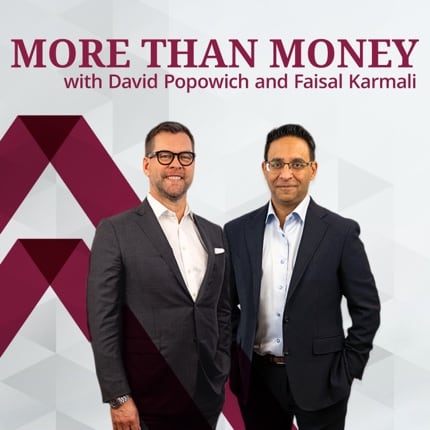Retiring when you feel physically, mentally, emotionally, and financially ready is the goal. However, that is not an option for everyone. Many people have to retire because of health problems, layoffs at their company, or issues within their family.
That got us thinking . . . Does how you leave the workplace predict your happiness in retirement?
We recently had Mariella Hoy, author of Lessons Learned in Retirement: Retiring with Purpose and Passion, on the show. Hoy was inspired to write her book after years of working as a Certified Professional Coach. She was tired of seeing the retirement stereotype (picture a couple in matching sweaters with their white hair blowing in the wind as they ride on a bicycle built for two . . .), when what her clients were actually experiencing was quite different. Some of the people who came through her workshops were approaching retirement with eager anticipation; however, others were experiencing worry, sadness, and outright fear.
Retirement is one of the biggest transitions of your life. Your routine disappears. Your relationships change. You view money differently. Hoy wrote her book to let people on the cusp of retirement know that they are not alone. It is normal to struggle with emotional and social challenges. And it is ok to sit in that place of discombobulation until you settle into your new chapter of life.
According to Hoy, how you leave your workplace can, in fact, predict how well you will transition into retirement. What she refers to as ‘conditions of exit’ can make a huge difference. These can be things like feeling valued at work as you transition, your ability to choose your own retirement date, the availability of retirement coaching, and your perceived coping skills.
Unfortunately a startling number of people are forced to retire unexpectedly, which will affect how well they adjust to retirement and how long that adjustment period will last.
The good news is that there are ways that you can prepare to find happiness in retirement, whether you chose your retirement date years ago or the transition was sprung on you. Hoy breaks happiness down into three main components:
People: Studies have shown that isolation can be as harmful to your health as smoking, obesity, or physical inactivity. The pandemic really highlighted these issues. For a happy retirement, you need people. You need family. You need friends to get together and do activities with. You need a community with shared values and mission. Don’t know where to start? Try a book club or a small theater group.
Passion: Hoy defines passion as being so immersed in doing something that you love that you lose track of time. This feeling does not come from lying on the couch watching TV; it comes from challenging yourself to increase your skill level in a certain area. What is a hobby or activity that gets you in ‘the zone’? It could be something like painting, running, or writing.
Purpose: Aristotle says that you find your purpose where your talents meet the needs of the world. This means that your retirement cannot be entirely focused on you. The happiest people are often those who look beyond themselves to serve the needs of others.
We will be talking about planning for a purposeful, financially secure retirement at our next seminar. You can register by clicking here.
Interested in reading Lessons Learned in Retirement: Retiring with Purpose and Passion? You can order it on Amazon by clicking here.











